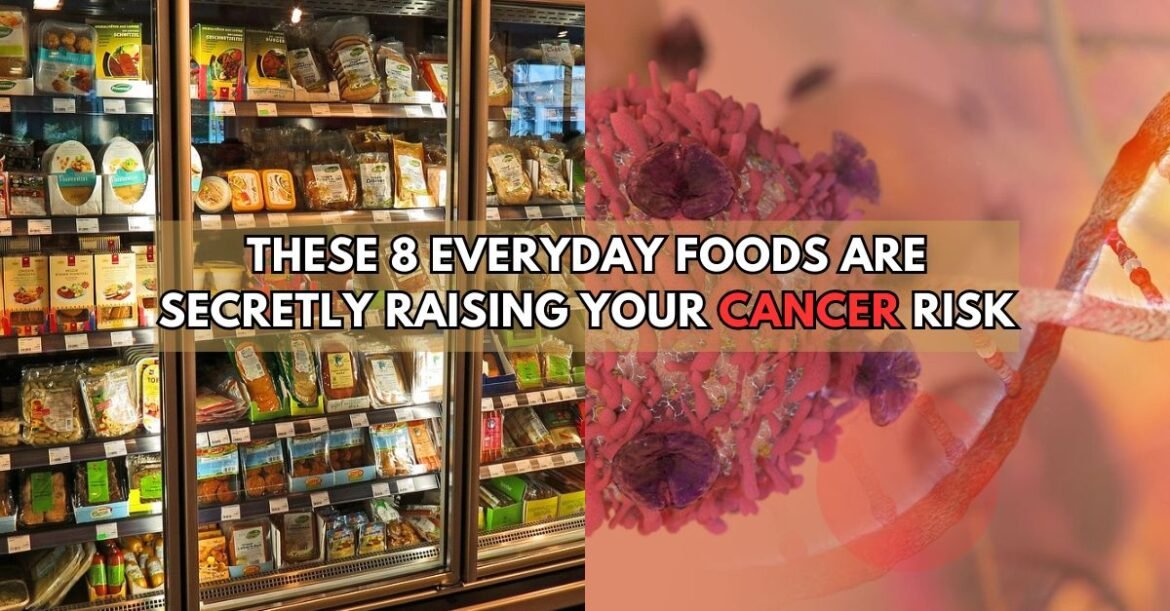Cancer is a complex disease with numerous potential causes, including genetics, infections, and poor lifestyle choices such as unhealthy diets, physical inactivity, smoking, and alcohol consumption. Exposure to environmental toxins and radiation can also elevate cancer risk. Medical research has established these factors as significant contributors to the development of cancer.
According to the World Cancer Research Fund, around 20% of cancer cases in the United States are related to weight gain, poor diet, physical inactivity, and excessive alcohol consumption.
The good news is that cancer can often be prevented by adopting healthier habits. Key preventive measures include:
- Regular physical activity
- Maintaining a healthy weight
- Quitting smoking
- Eating a diet rich in organic fruits and vegetables
However, certain foods have been shown to increase the risk of cancer. Below are eight common foods that experts advise you to avoid.
1. Refined and Artificial Sugary Foods
Consuming too many foods high in refined sugars and artificial sweeteners, like high-fructose corn syrup, can lead to serious health problems. These foods spike insulin levels, fueling the growth of cancer cells. A 2006 study published in The American Journal of Clinical Nutrition revealed that individuals who consumed high amounts of sugary foods had an elevated risk of pancreatic cancer. To reduce your risk, consider replacing these sugars with healthier alternatives like stevia, raw honey, or maple syrup.
2. White Flour
Many processed foods are made with refined white flour, which is high in carbohydrates that can raise blood sugar levels and increase cancer risk. Studies have shown that women who consume large amounts of carbohydrates are at a higher risk of developing breast cancer. Opt for healthier flour alternatives like whole wheat, almond, quinoa, or barley flour.
3. Smoked and Pickled Foods
Smoked and pickled foods can be harmful because smoking meat introduces toxic chemicals, while pickled foods often contain nitrates. These nitrates can transform into carcinogenic N-nitroso compounds. Additionally, the preservatives used to prolong the shelf life of these products can lead to cellular damage, increasing cancer risk. Avoiding these foods can help reduce your exposure to these risks.
4. Red and Processed Meat
Processed meats such as ham, bacon, and sausages are loaded with preservatives and salt, which have been linked to colorectal cancer. High consumption of red meat also increases the likelihood of developing prostate and colorectal cancers. Choosing grass-fed meat instead of processed or conventionally raised meats can be a healthier option.
5. Farmed Salmon
Unlike wild salmon, farmed salmon may pose health risks. Studies have found that farmed salmon contains higher levels of harmful chemicals like mercury, dioxins, and flame retardants, which have been linked to cancer. For better health, opt for wild-caught salmon, which offers more nutritional benefits without the risks associated with farmed varieties.
6. Hydrogenated Oils
Hydrogenated oils, commonly used to extend the shelf life of processed foods, undergo chemical extraction from vegetables and become toxic during manufacturing. These oils are high in trans fats and omega-6 fatty acids, which can disrupt cell function and increase the risk of cancers, including skin cancer. To reduce your risk, switch to healthier oils like extra virgin coconut oil or olive oil.
See also: Is Your Body Too Acidic? Here’s What You Need to Do Immediately (Recipe)
7. Potato Chips
Potato chips are cooked at extremely high temperatures, which leads to the formation of acrylamide, a known carcinogen. Research from the National Cancer Institute shows that acrylamide may increase the risk of cancers like ovarian, breast, prostate, and gastrointestinal cancers. Additionally, potato chips are high in unhealthy fats, calories, artificial flavors, and preservatives, all of which can contribute to obesity and heart problems. For a healthier snack, try homemade chips or baked alternatives like banana or apple chips.
8. Microwave Popcorn
Microwave popcorn contains a chemical called perfluorooctanoic acid (PFOA), which has been linked to kidney and bladder cancer as well as fertility issues in women. Moreover, microwave popcorn is often packed with GMOs and preservatives like propyl gallate. Consider air-popping your popcorn at home for a healthier alternative.





